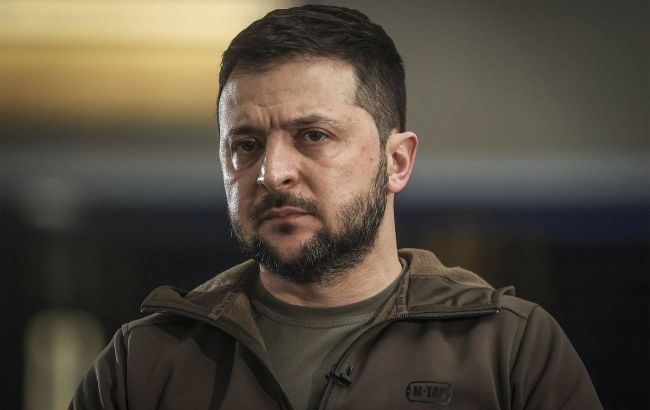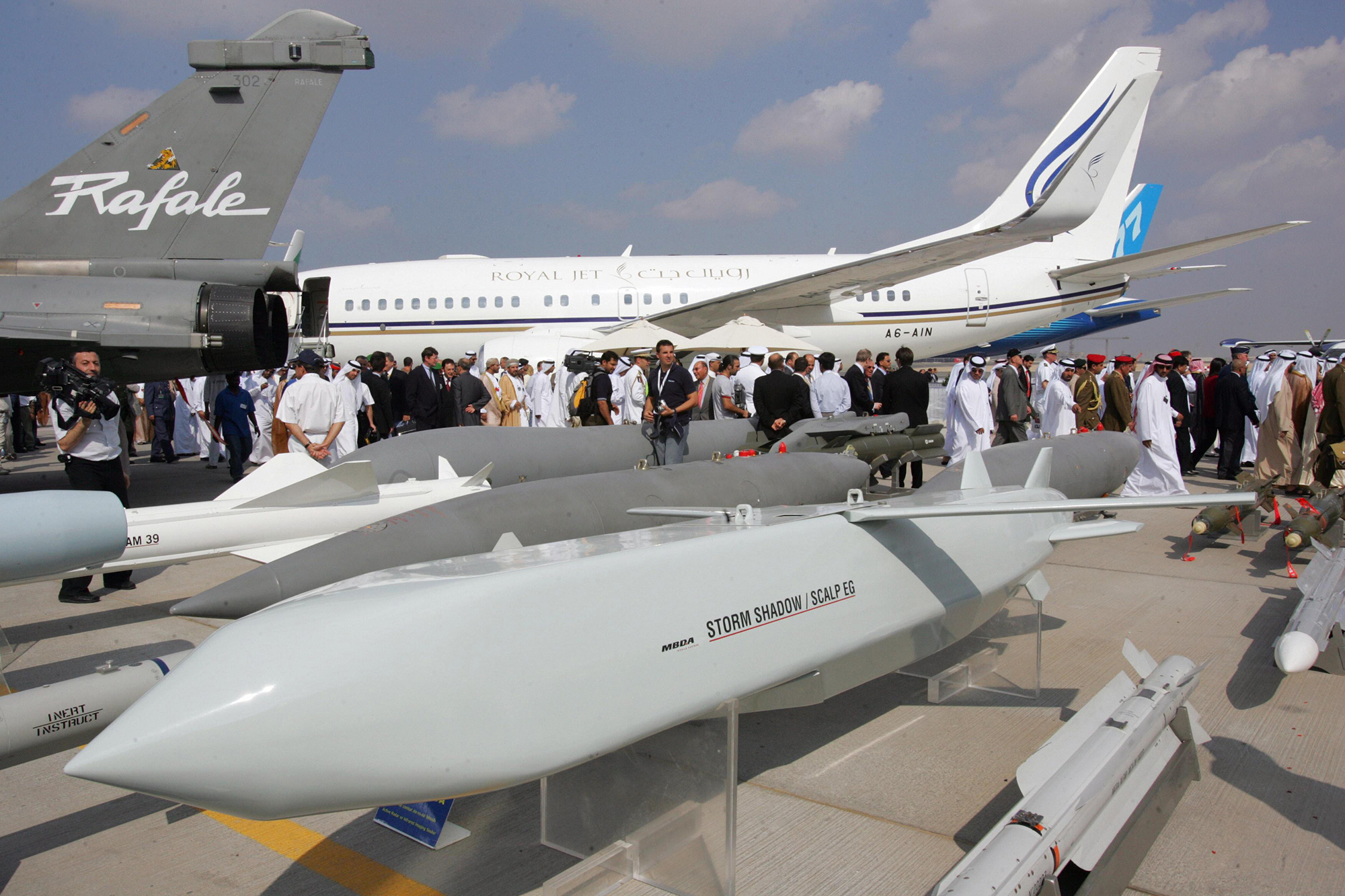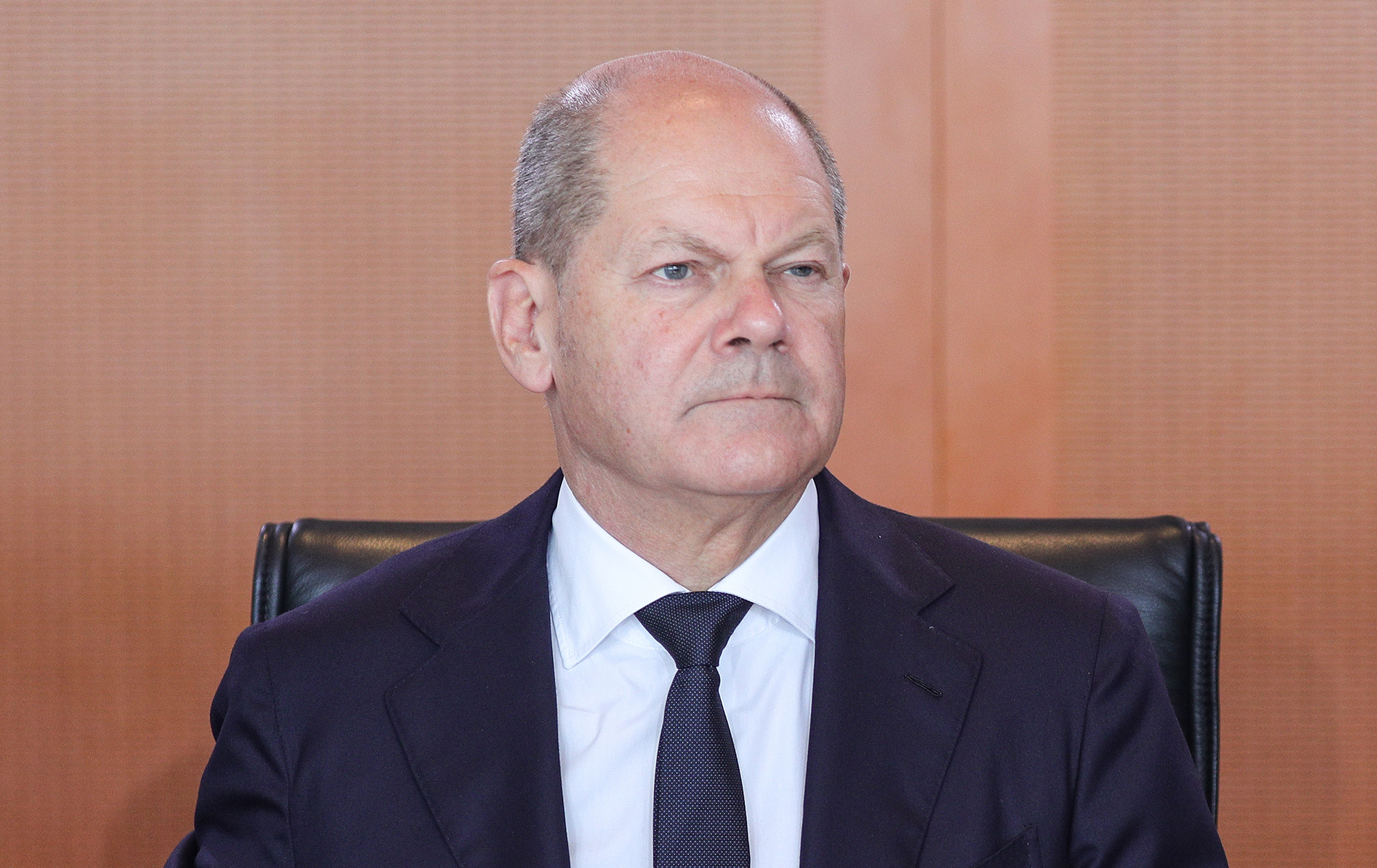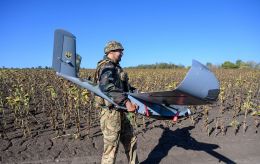Peace plan and end of war? Is West pushing Ukraine to negotiations and how Zelenskyy will respond
 President of Ukraine Volodymyr Zelenskyy (photo: Getty Images)
President of Ukraine Volodymyr Zelenskyy (photo: Getty Images)
Zelenskyy's victory plan and expectations from the second peace summit, the strategy of the Ukrainian government and the (im)possibility of freezing the war, alternative peace plans of the West and China, the importance of the Kursk operation, and the risks of a Russian offensive in Donbas in RBC-Ukraine's article.
Contents
- Zelenskyy's victory plan and Ukraine's trump cards
- Alternative peace plans and freezing of war
- Kursk operation and Russian offensive on Pokrovsk
In the context of the Russian-Ukrainian war, the word “negotiations” has recently been the most popular in the West, overtaking “Pokrovsk” and even “Kursk.” Not a single day goes by when one of the leading Western media outlets does not publish a lengthy article on peace plans, peace enforcement, prospects for negotiations, ending the war, and so on. Top politicians and officials of Western countries speak on this topic in a very vague way, but regularly.
In Ukraine, the topic of ending the war is also constantly raised, but in the context of the government's diplomatic efforts to prepare for the second peace summit. As part of these preparations, Volodymyr Zelenskyy's victory plan was developed, which he will present in the United States next week to Joe Biden and his possible successors in office, Kamala Harris and Donald Trump.
Zelenskyy's victory plan and Ukraine's trump cards
Before the official presentation of the victory plan in Washington, Zelenskyy did not elaborate on its content. According to the President, it will include four points- political, military, economic, and diplomatic-as well as one additional point that will be needed after the end of hostilities.
According to RBC-Ukraine's informed interlocutors, there are no shocking surprises in the plan, although there will be some innovative things and the logic of their combination. In general, the plan is in line with Ukraine's vision of a just end to the war and its postwar future. And it will require actions from the West that would strengthen Ukraine's position and weaken Russia. “The purpose of the victory plan is to force Russia to conduct meaningful negotiations at a peace summit,” says one of the sources in the presidential environment.
 The first peace summit in Switzerland (Photo: Presidential Office)
The first peace summit in Switzerland (Photo: Presidential Office)
The presentation of the victory plan also fits into the logic of political events in the United States, where presidential elections will be held in a month and a half, a global event that will have a direct impact on the course of the Ukrainian war with Russia. “In the US, everyone understands that the winning rhetoric in the election is "we must stop this war". Trump expects to do this through his charisma, and the Democrats - through the very fact that we have a plan. They say there is a plan, now we need Kamala to win, and we will be able to put Putin at the negotiating table,” says one of the Ukrainian sources.
The US election itself is an unpredictable event, not only because of the minimal gap in the ratings but also in the context of how calmly it will go and what the post-election period will look like. At the very least, Trump's rhetoric in recent weeks suggests that he is not going to accept defeat under any circumstances. In the event of a minimal victory for Harris (and this is a very likely scenario), Trump and his supporters could provoke a serious political conflict, and for a while, Americans would not care about events in the outside world.
However, the baseline scenario assumes that the second global peace summit will take place shortly after the American elections, in November. The participation or non-participation of Russian representatives (as well as the scope of their mandate) is another big intrigue.
One of RBC-Ukraine's sources in military and political circles says: “Ukraine declares its position that the Peace Summit should be the basis for peace initiatives. That is why, back in the summer, the Presidential Office started talking about the possibility of inviting Russian representatives to the Summit to increase the so-called legitimization of this platform."
“Does Ukraine want to see Russia at the second summit? Ukraine wants to see China there and with it the entire Global South, which does not consider such a platform viable without Moscow's participation,” the source says.
Thus, if all parties agree to see Russia there, the Kremlin will face a choice: either to accept this invitation, which is likely to be encouraged by Beijing, Brazil, and New Delhi, or to show that Putin does not want any peace or negotiations.
Ukraine's maximum task in this context is not only to get Russia to come there but also to sign up to Ukraine's demands, including the withdrawal of troops, etc. To do this, it is necessary to create the proper level of pressure on Russia because so far it is insufficient to force it to do so.
According to Kyrylo Budanov, the head of the Defense Intelligence of Ukraine, somewhere in the middle of next year, Russia will begin to experience serious problems related to the war: lack of human resources and economic problems. So far, however, it has generally been able to cope with these problems, despite some painful things, such as Ukrainian strikes on its rear and the loss of part of the Kursk region. Thus, Russia has no incentive to engage in real negotiations, despite some statements by the Kremlin. So for now, the Russians are trying to push forward as much as they can to capture as much as possible at least until the US election as the next big turning point - and then they will act on the situation.
Ukraine has serious trump cards to significantly strengthen its position in the foreseeable future. One of them is permission to use Western weapons to strike deep into Russia. According to RBC-Ukraine's sources, a decision on this will be made, and this irritates the Russians. In addition to solving purely military and logistical problems - a significant reduction in the military potential of Russia - such strikes may also cause discontent among the Russian population. “Our intelligence is confident that such attacks on Russia can shake up their population, and this will force the Kremlin towers to think about something and come up with some solutions. Of course, we do not know what is in the minds of the Russians. But the hysteria on the other side shows that we have probably touched on a painful topic for them,” says one of the interlocutors.
 Storm Shadow/SCALP missiles, which Ukraine wants to use to strike deep into Russian territory (Photo: Getty Images)
Storm Shadow/SCALP missiles, which Ukraine wants to use to strike deep into Russian territory (Photo: Getty Images)
Indeed, even the Russian leadership's reaction to the Ukrainian Armed Forces' entry into the Kursk region seems to have been less nervous than the potential permission to hit their rear with Western missiles. Even Putin himself had to state that such permission would mean directly involving Western countries in the war. The fact that the West accepted these threats without any panic caused some irritation in the Kremlin.
In addition, between the US election and the inauguration of the new US president, some interlocutors in Kyiv believe that there may be a certain window of opportunity when Joe Biden, at the very end of his term (and his political career in general), can give Ukrainians a so-called parting gift.
Alternative peace plans and freezing of war
In parallel with the main Ukrainian track related to the peace formula, peace summit, victory plan, etc., other peace plans, negotiation formats, and peacekeeping initiatives have appeared, are appearing, and will continue to appear in various formats.
At the same time, all the interlocutors from the highest military and political leadership of Ukraine with whom the agency spoke are convinced that although various articles and statements on the topic of peace reflect the prevailing sentiment that it all needs to end somehow, in fact, they are just white noise. Many people are simply publicly throwing their ideas into the global space, including Russians, and usually not directly.
There have been many similar media waves on the topic of ending the war over the past couple of years, and each time they ended in nothing. At the same time, RBC-Ukraine's interlocutors in diplomatic circles assure us that Western partners often raise the issue of ending the war during closed-door meetings. But this does not happen in the format of pressure on Ukraine but in the form of questions such as “How do you see it?”, “What is your plan for the next months/year?”, etc.
Some Western figures in their peacekeeping initiatives are guided by purely domestic political logic. A striking example is German Chancellor Olaf Scholz. Recently, he has been speaking publicly about ending the war in Ukraine, and the Italian agency La Repubblica even published his so-called peace plan, some kind of Minsk-3 with the transfer of part of Ukrainian lands to Russia.
Ukrainian political circles are convinced that this activity of Scholz's is caused by the disastrous situation with his party's ratings a year before the parliamentary elections and a series of painful defeats in the recent elections in the federal states. Since far-right and far-left populists with their peacekeeping and surrenderist proposals are on the rise in Germany, especially in the former GDR states, the ruling Social Democrats have also decided to adopt similar rhetoric to win back the northeastern electorate.
 German Chancellor Olaf Scholz (Photo: Getty Images)
German Chancellor Olaf Scholz (Photo: Getty Images)
Another version of Trump's Ukraine plan, announced by his vice presidential candidate J.D. Vance, has made no less noise. In essence, it boils down to freezing the conflict on the current front lines, with no compensation for Ukraine, which will be defenseless against the next wave of Russian aggression.
The idea of a freeze in one form or another is generally popular, including in the Global South. To stop hostilities and stay on the controlled territories - this formula, for example, is what the Sino-Brazilian peace plan actively promoted by Beijing boils down to.
This idea is also circulating in some circles in the West. According to one scenario, such a de facto freeze of the war will take place even without signing any official peace agreements, without creating contact negotiation groups like the TCG on Donbas, etc. - the issue will be resolved at the level of the military, to which the military and political leadership unofficially delegates the relevant powers. At a certain point in time, both sides will stop trying to move forward, and mutual shelling of the rear will also stop.
However, the positions of the adherents of the realities on the ground approach and the ceasefire along the actual contact line were significantly undermined by Ukraine's operation in the Kursk region. After all, this option would mean that part of the internationally recognized territory of Russia would be under the control of Ukraine for an indefinite period. Therefore, various ideas are constantly circulating on the sidelines about exchanging part of the Kursk region for something else, including the most exotic ones. The extent to which such exchanges can be realized in practice is another open question.
“We will not give up our territories in any case, but there are different ways to return them military and political and diplomatic-and different lengths of time for this process,” says a source in the Ukrainian government.
At the same time, a freeze of the conflict would be an extremely unpleasant scenario for Ukraine, in part because it would almost certainly lead to a significant reduction in Western aid with the motivation that Russians are not shooting at you anymore. Therefore, at the highest political level in Kyiv, this scenario is categorically opposed.
Kursk operation and Russian offensive on Pokrovsk
Several of RBC-Ukraine's interlocutors suggested that real peace talks may eventually take place in a format other than the official peace summit and related initiatives. For example, in the Ukraine-USA-UK-France-Germany-China-Russia polygon, or through shuttle diplomacy methods. However, no such process has yet crystallized.
What all the RBC-Ukraine's sources agree on is that the determining factor for the format of the end of the war will be the actual situation at the front.
And it is worth recognizing that it is generally not developing in Ukraine's favor. Since the fall of last year, the Russians have launched an offensive and, in fact, still hold the strategic initiative on the battlefield. However, the Ukrainian Armed Forces' Kursk offensive has somewhat confused Russia's plans.
 The destroyed bridge over the Seim in the Kursk region (Photo: t.me/astrapress)
The destroyed bridge over the Seim in the Kursk region (Photo: t.me/astrapress)
According to the agency, the Kremlin wanted to assemble a 5-to-1 grouping for its counteroffensive in the Kursk region. Now, this proportion has probably not yet been achieved. Informed sources of RBC-Ukraine claim that Russia has now concentrated about 37,000 troops in the Kursk region. From September 10 to 11, they launched a counteroffensive operation to push back the Ukrainian Armed Forces.
One of the RBC-Ukraine's interlocutors in the Ukrainian Defense Forces says that the tasks and schedules of Russian troops are to push Ukrainian forces out of the entire Kursk region by October 15 and to create a so-called buffer zone on the territory of the border regions bordering Russia by October 30. Given that Ukraine's General Staff is aware of Russia's plans and is preparing to counter them, these plans may remain only on paper. At least a month ago, some of the agency's interlocutors in the military leadership made much more pessimistic predictions about Ukraine's ability to hold the occupied part of Kursk than what happened.
The loss of control over part of the Kursk region forced the Kremlin to prioritize its campaign goals. Moscow has withdrawn some troops from many frontline areas to stop the Ukrainian Defense Forces and drive them out of its territory. The Russians really can't continue to be active in a dozen areas at once, as they were in the spring. This is one of the important results of the Kursk campaign. However, in four areas, the Russians continue to exert strong pressure, advance, and seize territory. Two of them remain extremely important for Moscow - Pokrovsk and the neighboring Kurakhove, which provides flanks for the Russian group that is pushing toward Pokrovsk.
Capturing this town could complicate the defense of Ukrainian troops in the entire Donetsk region. Interlocutors in the Ukrainian Defense Forces believe that under a pessimistic scenario, the battle for Pokrovsk could begin in a month, and by the end of the year, Russia could occupy Pokrovsk, Toretsk, and Vuhledar.
At the same time, under an optimistic scenario, the Russians will be forced to take an operational pause in a month or two without capturing any of these cities. Russia also has its problems. Russia's actions in the Kursk region have demonstrated that it lacks reserves. The number of troops that Moscow has gathered there for a counteroffensive is currently insufficient to successfully and quickly dislodge the Ukrainian army. These forces will probably need to be built up.
One of the interlocutors in the Ukrainian Defense Forces predicts that Russia may face a dilemma this fall: either to conduct a new wave of mobilization or to sacrifice the pace of its offensive. Previously, the Kremlin did not experience this problem due to the recruitment of contract volunteers. According to the agency, in some months, the recruitment plan was fulfilled by as much as 115%.
However, in recent months, this figure has begun to decline for the first time. According to RBC-Ukraine's sources, over the past month, the plan to recruit contract soldiers for the war with Ukraine was fulfilled by less than 70%. Less than a fifth of conscripts agree to switch to contract service. This indicates that the number of Russians willing to go to war for money is decreasing. Therefore, the problem of recruiting personnel for the Russian army is a problem that the Kremlin will inevitably face sooner or later. And a new wave of mobilization will entail additional burdens on the Russian budget and a portion of social discontent, which Putin seems to prefer to do without.
 Evacuation from Pokrovsk (Photo: State Emergency Service)
Evacuation from Pokrovsk (Photo: State Emergency Service)
This is not to say that Ukraine does not have such problems. However, no less crucial for the Ukrainian Defense Forces are ammunition, equipment, and weapons, the lion's share of which comes from Western countries. Therefore, Ukraine's position by the end of this year and immediately before any negotiations begin will be determined by the amount of assistance from its partners.
At the same time, both Kyiv and Western capitals are generally convinced, though not unconditionally, that the fighting will end next year, in any of the possible formats. For example, several sources confirmed to RBC-Ukraine that the Americans are directly telling Ukrainian authorities to prepare for elections next year (and even possibly as early as the end of next spring).
And this will a priori mean the lifting of martial law - after long discussions, everyone in Kyiv and Washington agreed that it is impossible to hold normal elections during the war.
However, even before martial law is lifted, hostilities must de facto cease, either with or without the signing of any documents. Then a transitional phase will begin to ensure that the ceasefire is sustainable. Therefore, according to one of the interlocutors, it could take about six months from the cessation of hostilities to the election date, especially since a huge amount of preparatory work will have to be done before the vote.
However, none of RBC-Ukraine's sources could answer the key question: how in practice can the maximalist and mutually contradictory demands of Ukraine and Russia, embodied in the peace formula and the so-called Putin's demands for Ukraine to surrender part of the territory it currently controls, in addition to the lands already occupied by Russia, be brought to a common denominator. No one was able to outline a possible field for compromise.
However, if the increasingly strong perception that the active phase of hostilities will end next year is put into practice, it will mean that neither side has won a decisive victory. “This will mean that we have survived the first round, and this is a miracle in itself: we have survived against Russia, with its resources. But Russia will want a second round. And our task will be to prevent this second round,” summarizes one of RBC-Ukraine's sources.

